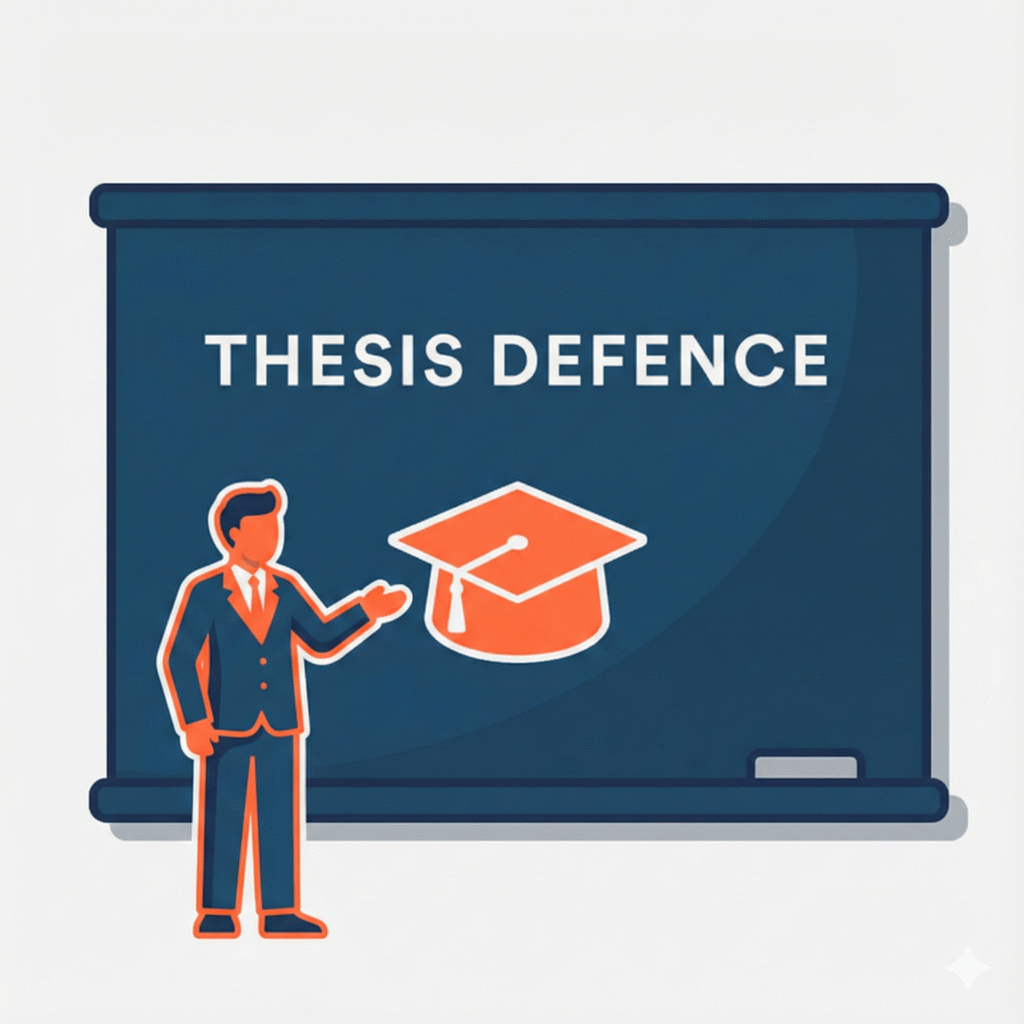TLDR: Your Quick-Start Guide
Writing a Masters thesis doesn’t have to be overwhelming. Here’s what you need to know:
- Start writing NOW – You can’t edit a blank page, and early writing helps you define your research
- Reference as you go – Don’t leave citations for later (trust me on this one)
- Write a little, often – Consistency beats marathon sessions every single time
- Your thesis isn’t a PhD – You don’t need to read every paper ever published in your field
- Get around other thesis writers – Community makes the journey bearable
- Separate drafting from editing – They’re different skills requiring different mindsets
- Use AI tools ethically – They’re game-changers when used correctly (more on this below)
Average reading time: 12 minutes
The Golden Rule: Start Writing Early (Even When You Don’t Feel Ready)
Let’s talk about the most important piece of advice you’ll ever receive about thesis writing.
You can’t edit a blank page.
I’ve seen countless postgraduate students fall into the same trap. They bury themselves in research, reading paper after paper, telling themselves they’ll start writing once they “know enough.” Before they realize it, they’re in the homestretch with nothing written down.
Here’s the truth: Your first drafts are going to be terrible. And that’s completely okay—they’re supposed to be terrible. But a bad draft is infinitely better than no draft because it gives you something concrete to work with, something to improve, something to edit.
Think of it this way: Most of the time Masters students spend “writing” is actually spent figuring out what their thesis is going to be about. The earlier you start defining your research project through writing, the better you’ll see what’s practical, possible, and interesting.
How to Start Writing When Everything Feels Unclear
Don’t wait until you have all the answers. Try this instead:
- Describe your research project in your own words – Pretend you’re explaining it to a friend over coffee
- Write down a rough plan – “I’ll use method X to examine question Y”
- Create headings for each chapter – Even if the content is garbage, the structure helps
- Rage write if you need to – If a heading feels stupid and you hate everything, write about that. At least you’re writing.
One postgraduate student put it perfectly: “Thesis becomes much more doable once you have something to work with. A blank page makes you anxious, so best to get something on it, even simple brainstorming.”
The Reference Trap (And How to Avoid It)
Let’s address something that will save you weeks of stress: Learn to reference properly and don’t put off referencing.
I know what you’re telling yourself right now. “I’ll just focus on writing first and add references later.” “I’ll remember where I got this information.” “Citations are boring, I’ll do them at the end.”
These are lies we tell ourselves, and they always come back to haunt us.
Here’s what actually happens when you leave referencing for later:
- You waste hours tracking down sources you used weeks ago
- You second-guess whether you’re plagiarizing because you can’t remember if those words were yours
- You spend your final week before submission doing administrative work instead of polishing your arguments
- Your stress levels skyrocket
The Smart Way to Handle References
Use reference management tools from day one. EndNote, Mendeley, Zotero—pick one and stick with it. These tools organize your citations and create bibliographies automatically, saving you countless hours of formatting headaches.
Pro tip: As you read each paper, write a half-page to one-page summary immediately. When it’s time to write your literature review, you’ll have everything you need at your fingertips. Just glue them together, then edit and refine.
Understanding What a Masters Thesis Actually Is
Here’s something many students don’t realize until they’re halfway through: A Masters thesis is not a PhD thesis.
Don’t feel pressured to be caught up on all the recent scholarship in your field. You’re not expected to make a groundbreaking contribution to human knowledge. Your thesis needs to demonstrate that you can:
- Apply research methods appropriately
- Analyze data or literature critically
- Construct a coherent argument
- Write at an academic level
That’s it. You’re showing what you’ve learned and what you’re capable of—not revolutionizing your discipline.
Ask your advisors to guide you. They know the expectations and can help you scope your project appropriately. Remember: Better to do one thing excellently than ten things poorly.
The Structure: Breaking Down Your Thesis Into Manageable Pieces
One of the best strategies for tackling a thesis is to break it into components. Most schools have a list of required thesis components—get that list. If yours doesn’t, borrow one from another institution.
Here’s a typical Masters thesis structure:
1. Introduction
- Set the stage for your research
- Define your scope clearly (what you’re doing AND what you’re not doing)
- Present your research question
2. Literature Review
This is where many students prefer to start, and for good reason. The literature review outlines the shape of existing research, its evolution over time, and its span across different contexts.
Your literature review should lead directly to the problem you’re addressing through your research. It shows where the gaps are and why your work matters.
3. Methodology
Once you identify your methods and type of study (qualitative, quantitative, or mixed), this section becomes relatively straightforward. It might include standard sections like ethics approvals and trustworthiness criteria.
Critical decision point: Are you using quantitative or qualitative data? This decision structures your entire thesis. Both have merits, but many researchers report having more fun with qualitative research (though quantitative has its own satisfactions).
4. Results/Findings
Your results should directly address the questions that emerged from your literature review. Present your findings objectively, whether they supported your hypothesis or not.
5. Discussion
This typically takes the longest to write. The key here is not to force your findings to fit the literature. Instead, explain what you found, how it aligns (or doesn’t) with existing research, and why. Address how your research tackles real-world problems and how your data might generalize to other scenarios.
6. Conclusion
Wrap up your main arguments and suggest directions for future research.
The Writing Process: Practical Tips That Actually Work
Separate Drafting from Editing
These are two completely different mental processes. When you’re drafting, just get words on the page—don’t worry about perfection. When you’re editing, that’s when you refine, reorganize, and polish.
Trying to do both simultaneously is like driving with one foot on the gas and one on the brake. You’ll exhaust yourself and make little progress.
Create a Sustainable Rhythm
Consistency trumps intensity. Here are strategies that work:
The 750 Words or 6 Hours Rule: Set a daily goal—either write 750 words or spend 6 hours on your thesis. Some days you’ll hit your word count by 11 AM and be done. Other days you’ll spend those 6 hours restructuring or fiddling with footnotes. Both count as progress.
The Pomodoro Technique: Write for 25 minutes without distraction, take a 5-minute break, repeat. Use a kitchen timer or app. This prevents burnout and maintains focus.
Weekly Check-ins: Don’t go more than a week without opening your document. This keeps your thesis alive in your mind and prevents the dreaded “where was I?” syndrome.
Get Out of the House
I cannot overstate this: Working from home rarely works for thesis writing. Your windows will never be cleaner than when you’re supposed to be working from home.
Go to the library, a reading room, a café—anywhere but home. The change of environment creates mental separation between “living space” and “working space.”
Find Your Tribe
What helped many students most was simply being around other thesis writers. Shared suffering becomes shared support. You’re not in this alone, and surrounding yourself with people facing similar challenges provides motivation, accountability, and the occasional reality check.
Join or create a writing group. Share your struggles, discuss challenges, and exchange feedback. The psychological boost is invaluable.
The AI Advantage: Using Technology to Write Smarter (Not Cheat)
Here’s where things get interesting—and where FuKazee comes in.
AI tools have revolutionized how postgraduate students conduct research and write their theses. But there’s a massive difference between using AI as a powerful assistant and using it to cheat. Let me be clear: AI should never replace your critical thinking.
How to Use AI Ethically in Your Thesis
For Literature Reviews:
- Use tools like Elicit, Consensus, or Research Rabbit to quickly identify relevant papers
- Generate initial summaries to assess relevance (then read the actual papers)
- Map citation networks to understand how research connects
- Never copy AI-generated summaries directly into your thesis
For Writing and Editing:
- Use AI to help overcome writer’s block by generating outlines
- Rewrite AI-generated content entirely in your own words
- Check grammar and clarity with tools like Quillbot (ethically)
- Use AI to generate alternative ways of expressing your ideas—then choose your preferred version
For Data Analysis:
- Automate preliminary data cleaning and categorization
- Generate visualizations to spot patterns
- Run initial statistical analyses (but understand what they mean)
For Organization:
- Use AI to suggest organizational structures for chapters
- Generate research questions based on your literature review (as starting points)
- Create study schedules and milestone reminders
The Non-Negotiables
- Always cite AI tools when you use them in your research process
- Rewrite everything in your own voice – never copy-paste from AI
- Verify all facts and citations – AI can hallucinate sources that don’t exist
- Understand your institution’s AI policy – rules vary widely
- Let your original thinking shine through – AI should support, not replace, your analysis
The Practical Nuts and Bolts
Timeline and Planning
Most Masters programs expect completion within two years, though extensions are usually available for unexpected life events.
Create a flexible plan. I emphasize flexible because circumstances always arise that challenge your schedule. Build in buffer time.
Set milestones: finish literature review by X date, complete data collection by Y date, first draft by Z date. Then work backward to create weekly or daily goals.
The Editing Phase
Leave time to edit and re-edit. You’ll think of things to include later. One student completely rewrote their literature review two days before submission and received an “excellent” grade—because they’d built in time for such revisions.
But don’t count on last-minute brilliance. Plan to finish your first complete draft at least a month before your deadline. This gives you space to:
- Let the thesis “rest” (you’ll see it with fresh eyes after a break)
- Get feedback from your supervisor
- Make substantial revisions if needed
- Proofread carefully
- Format properly
Taking Care of Yourself
This might sound soft, but it’s crucial: Remember to eat healthily, drink water, stretch, and go for walks. A thesis is a marathon, not a sprint. You can’t perform well if you’re exhausted, dehydrated, and living on coffee and anxiety.
Your brain needs proper fuel, sleep, and movement to function well. Prioritize these things—they’re not luxuries; they’re necessities for producing quality work.
Scope and Quality: What Examiners Actually Look For
Your examiners evaluate several key aspects:
Clear Scope and Goals: Define early what you’re setting out to do (and what you’re NOT doing). Make your goals clear and attainable but high. Pro trick: Once you’re done with your research, revisit your introduction to ensure your scope still matches what you actually did.
Command of the Topic: Show that you understand how your work fits into the bigger picture. Select and cite papers appropriately and critically—not just comprehensively.
Sound Methodology: Justify your choices. Why did you choose method X over method Y? Why did you make decision Z in preparing your data? Even if you made mistakes, you can still get credit for thoughtful reasoning.
Clear Writing: Make it easy for your reader to understand your logic. Use transition paragraphs to ease from one chapter to the next. Each section should build logically on the previous one.
Critical Analysis: Don’t just describe—analyze, evaluate, and synthesize. Show your thinking, not just your reading.
Common Pitfalls to Avoid
The Scope Creep: 95% of initial thesis scopes are too broad. Resist the urge to tackle everything. Better to explore one focused topic entirely than to skim across ten related areas. Remember: 0 × 10 = 0, but 0 + 1 = 1.
The Perfection Paralysis: Stop thinking, start writing. You’re creating an academic work, not a magnum opus. The biggest enemy to progress is waiting until you feel “ready.”
The Isolation Spiral: Thesis writing is lonely, but it doesn’t have to be isolating. Reach out regularly to your supervisor, maintain connection with fellow students, and don’t suffer in silence when you’re stuck.
The Last-Minute Reference Panic: We covered this, but it bears repeating: Reference as you go. Your future self will thank you profusely.
The AI Dependency: AI is a tool, not a ghostwriter. Use it to enhance your work, not to replace your thinking. Your thesis should sound like you, not like ChatGPT.
Your Next Steps: From Overwhelmed to On Track
Let’s make this concrete. Here’s what you should do right now:
Today:
- Open a new document
- Write 500 words about your research interest—anything, doesn’t matter how rough
- Set up a reference manager (if you haven’t already)
- Schedule your next meeting with your supervisor
This Week:
- Create a thesis outline with chapter headings
- Write one page summarizing three key papers you’ve read
- Set up a writing schedule: specific times, specific places
- Find or create a thesis writing group
This Month:
- Complete a rough draft of at least one chapter (literature review is a good start)
- Establish your daily writing rhythm (750 words or 6 hours—your choice)
- Meet with your supervisor to ensure you’re on track
- Learn to use at least one AI tool ethically in your research process
Level Up Your Thesis Game with the Right Training
Here’s the thing about AI and research technology: The tools are powerful, but only if you know how to use them properly. That’s where most postgraduate students struggle—not because they can’t use technology, but because no one taught them how to integrate it ethically and effectively into academic work.
If you’re serious about finishing your thesis efficiently without compromising academic integrity, you need structured guidance. Random YouTube tutorials and guessing what prompts work best will waste your time and leave you confused about what’s acceptable.
Ready to transform how you approach your thesis?
FuKazee specializes in teaching postgraduate students, researchers, and lecturers how to leverage AI and technology in research—the right way. Whether you need to master literature review tools, learn ethical AI writing practices, or understand how to choose the right tool for each stage of your research, we’ve got you covered.
Here’s how we can help:
- ScholarShift Accelerator: A 2-week cohort program teaching you the A to Z of technology in research ($100 / KES 12,000)
- Transformation Bundle: Four personalized one-on-one sessions tailored to your unique research needs (KES 10,000)
- Problem-Solver Session: A focused 60-minute deep-dive to tackle specific, time-sensitive thesis challenges (KES 3,000/hour)
We’ve helped hundreds of postgraduate students cut their research time in half while improving the quality of their work. From mastering Consensus and Elicit for literature reviews to learning prompt engineering for ChatGPT, we ensure you’re using AI as a powerful assistant—not a crutch.
Visit FuKazee.com today to explore our programs and join the next cohort of students who are finishing their theses faster, smarter, and with less stress.
Because at the end of the day, your thesis isn’t just about getting a degree—it’s about proving to yourself what you’re capable of achieving.
Now stop reading and go write something. Remember: you can’t edit a blank page.
FAQs: Quick Answers to Common Questions
Q: How long should my Masters thesis be? A: This varies by discipline and institution, but typically 15,000-50,000 words. Check your program’s specific requirements—this matters more than general guidelines.
Q: Can I use AI tools without getting in trouble? A: Yes, if used ethically. Always check your institution’s AI policy, cite tools when used, rewrite AI output in your own words, and never let AI replace your critical thinking. When in doubt, ask your supervisor.
Q: What if I don’t know what to write about? A: Start writing anyway. Describe what interests you about your field. Explain what you’ve learned so far. The act of writing helps clarify your thinking. Your topic will emerge through the process.
Q: How much should I read before starting to write? A: Enough to understand the landscape, but not so much that you never start writing. Aim for breadth first (understand the major conversations in your field), then depth as you write. Reading and writing should happen concurrently, not sequentially.
Q: My supervisor is hard to reach. What should I do? A: Be proactive. Send clear, specific questions via email. Prepare agendas for meetings. Show progress to demonstrate you’re serious. If issues persist, consult your department about formal supervisor expectations or consider requesting a change.
Q: How do I know if my research question is good? A: It should fit in one simple sentence that your classmates can understand. It should be answerable with your available resources and timeframe. It should fill a gap in existing research. And most importantly: you shouldn’t know the answer before you start.






